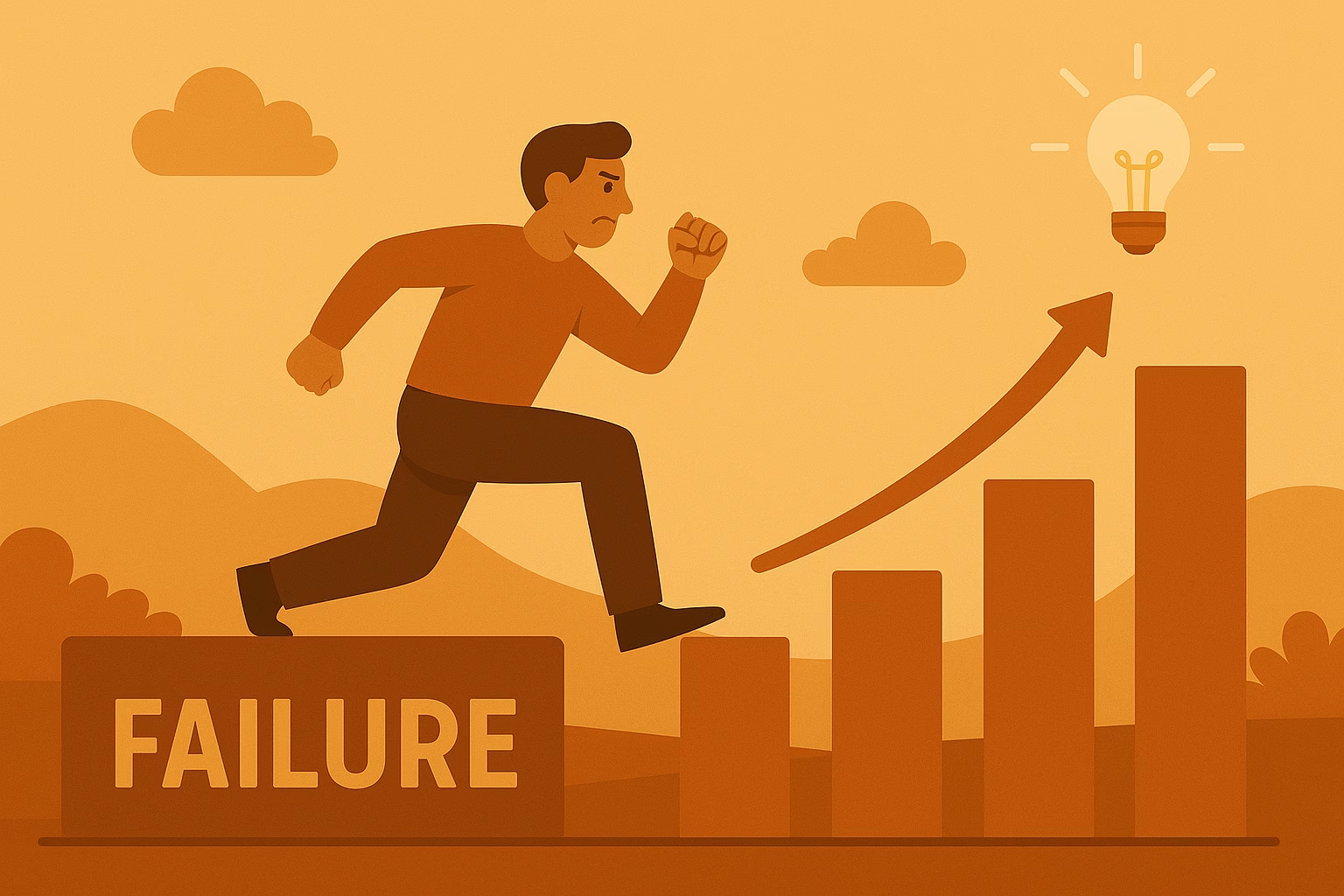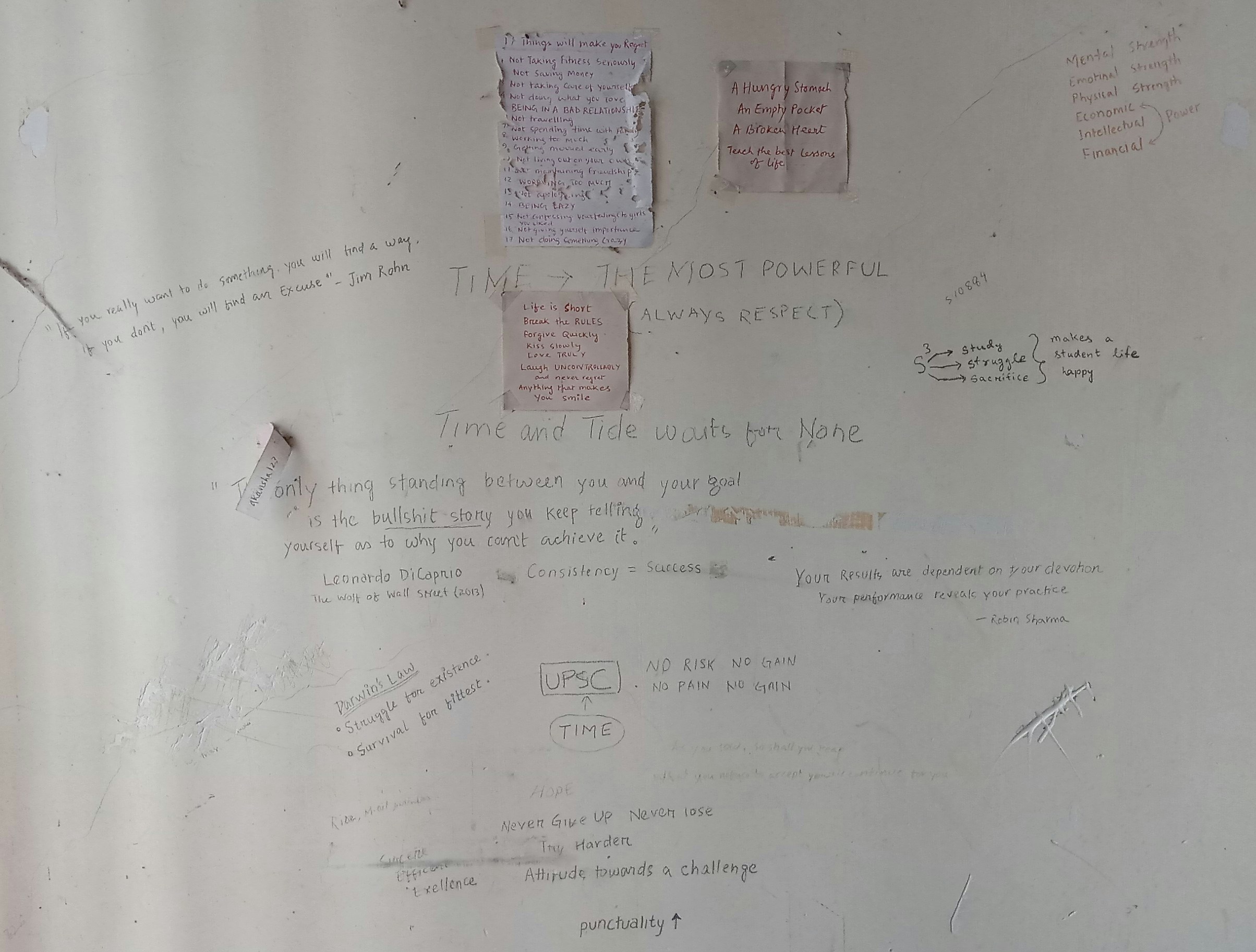"Better Every Day For You" -NeoKalon
Overcoming Failure: How To Learn From Failure

Overcoming failure is something everyone faces sooner or later. Whether it’s a personal goal, a business idea, a relationship, or a routine, you will fail. And while most people see failure as something to avoid, successful people view it differently. They see failure as a tool, a feedback system for growth.
You don’t need to fear failure. You need to study it, learn from it, and use it. Every obstacle, no matter how painful, can give you something valuable if you’re willing to look deeper.
Reframing the Meaning of Failure
One of the biggest mindset shifts in overcoming failure is realizing that failure is not the opposite of success — it’s part of it. Most people grow up thinking success is a straight line: make a plan, work hard, and win. But real life isn’t like that. Success is messy, unpredictable, and full of setbacks.
To grow, you need to reframe what failure means. Instead of thinking “I failed, so I’m not good enough,” think “I failed, so I just discovered one way that doesn’t work.” Every failure is a filter. It removes wrong strategies, wrong environments, or weak habits. Reframing failure as feedback is the first key to using it.
Ask the Right Questions After Failing
When things go wrong, most people either shut down emotionally or blame external forces. But those reactions are distractions. The real way to grow from failure is to get curious.
Ask yourself:
- What exactly failed and why?
- Was this within my control?
- What signs did I ignore?
- What can I do differently next time?
This is how you extract wisdom from failure. It’s not enough to feel bad and move on — you must process the experience. Overcoming failure requires reflection, not regret. When you make this a habit, failure becomes your teacher, not your enemy.
Every Failure Has a Lesson — Find It
Sometimes failure hits hard. You lose money, time, confidence, or all three. But no matter how painful it is, there’s always a lesson buried inside.
The mistake most people make is rushing to forget the failure. They want to move on so fast they miss what it had to offer. But failure is like a wound. It only heals properly if you clean it out. That means looking at what led to it.
Did you:
- Ignore your gut feeling?
- Act out of fear instead of logic?
- Rush into something unprepared?
Each mistake becomes a lesson once you name it. That’s how you gain from every obstacle. You don’t need to suffer in vain. You need to suffer with awareness and come out smarter on the other side.
Use the Pain as Fuel, Not a Cage
There’s a moment in every failure where you feel crushed. You might feel embarrassed, angry, or like giving up entirely. This is the breaking point, but it’s also the turning point.
The pain of failure is powerful. But you have two choices:
- Let it destroy your confidence.
- Let it fuel your comeback.
Great people choose the second option. They take the same energy that could make them quit and use it to push harder. Think of failure like fire. It can burn you, or it can forge you. The outcome depends on your mindset.
Overcoming failure is not just mental — it’s emotional. The fire has to be turned into action.
Keep Moving, Even If It’s Slow
Many people fail once and stop completely. They think, “I guess this wasn’t meant for me.” But the real reason they stop is fear. Not fear of failure, but fear of more failure.
But here’s the truth: the only way you really fail is if you give up.
Progress often happens right after the hardest setbacks. You were close — you just didn’t see it yet. So instead of quitting, take one more step. And then another. Even if it’s slower, messier, and more painful than before — keep going.
The people who win aren’t the most talented or the luckiest. They’re the ones who kept moving. They saw failure as a chapter, not the end of the book.
Final Thoughts on Overcoming Failure
Failure is not a dead end. It’s a checkpoint. Every time you fail, you’re being shown a better way. You’re being pushed to adapt, to grow, and to build something stronger.
Overcoming failure isn’t about avoiding mistakes. It’s about maximizing the value of every mistake you make. You either win or you learn. And if you learn well enough, eventually — you win.
So don’t run from your failures. Study them. Honor them. Use them. Because every obstacle you overcome becomes the very thing that builds your character.
Summary: What You Can Use Immediately
Here’s what to take with you today:
- Failure is part of success. Don’t fear it — study it.
- Always ask: What’s the lesson here?
- Pain is fuel — use it to drive your comeback.
- Keep moving forward. Momentum is everything.
- You’re not starting from scratch — you’re starting from experience.
Recommended Reads & Related Resources
To help you go even deeper on your journey to living without limitations, here are some powerful books and articles we recommend. These resources can expand your mindset, build discipline, and inspire lasting change.
📚 Books to Read:
- Atomic Habits by James Clear – A practical guide on building systems and making small changes that lead to big results.
- The Subtle Art of Not Giving a F*ck by Mark Manson – A brutally honest book on letting go of unimportant things and living life on your own terms.
- Can’t Hurt Me by David Goggins – A powerful story of resilience, mental toughness, and pushing past limits.
- Ego Is the Enemy by Ryan Holiday – Learn how to conquer your inner resistance and lead with humility and strength.
Explore More & Stay Connected
If you found this post helpful or inspiring, make sure to check out our other articles on personal growth, mindset, and building a life of purpose. Every blog is crafted to help you break free from limitations and become the person you’re meant to be.
👉 Browse more blog posts here
👉 Return to the NeoKalon homepage
We update regularly, so don’t miss out on fresh content designed to challenge your mindset and fuel your journey. Your transformation starts here — one step, one thought, one habit at a time.
And of course don’t forget to leave a comment of your opinion and thoughts about this post. And thanks again for reading. Until next time.




Failure is often seen as the end, but it’s really just the beginning of something better. It’s fascinating how you emphasize the importance of curiosity in the face of failure—most people don’t realize that’s where growth begins. I’ve always wondered: why do we rush to forget our failures instead of dissecting them? It’s like we’re afraid to confront the truth, but that’s where the gold is hidden. I love the analogy of failure being a wound—it only heals if you clean it out. But here’s a question: how do you differentiate between a failure that’s worth learning from and one that’s just a sign to move on? I’d love to hear your thoughts on that. Also, do you think fear of more failure is just as paralyzing as fear of failure itself? This post really made me reflect on my own setbacks—thanks for that.
Thank you — this is such a powerful and reflective response.
You’re absolutely right: we often rush to bury failure instead of studying it, like we’re ashamed of the bruise instead of appreciating what caused it. The gold is always in the dissection, as you said.
To your question: how do you know if a failure is worth learning from or a sign to move on?
For me, it comes down to intention vs. direction.
If the failure came from something you truly care about — a goal rooted in your values — then it’s almost always worth learning from and continuing.
But if it’s draining you and pulling you away from your deeper goals, it may be life’s way of redirecting you.
As for fear of more failure — yes, it’s just as paralyzing. Sometimes even worse. The first failure stings, but the anticipation of another can freeze you. The cure? Take smaller, faster risks. Build momentum, not perfection.
Your reflection is exactly the kind of growth mindset that turns setbacks into superpowers. Appreciate your honesty — keep digging into that gold.